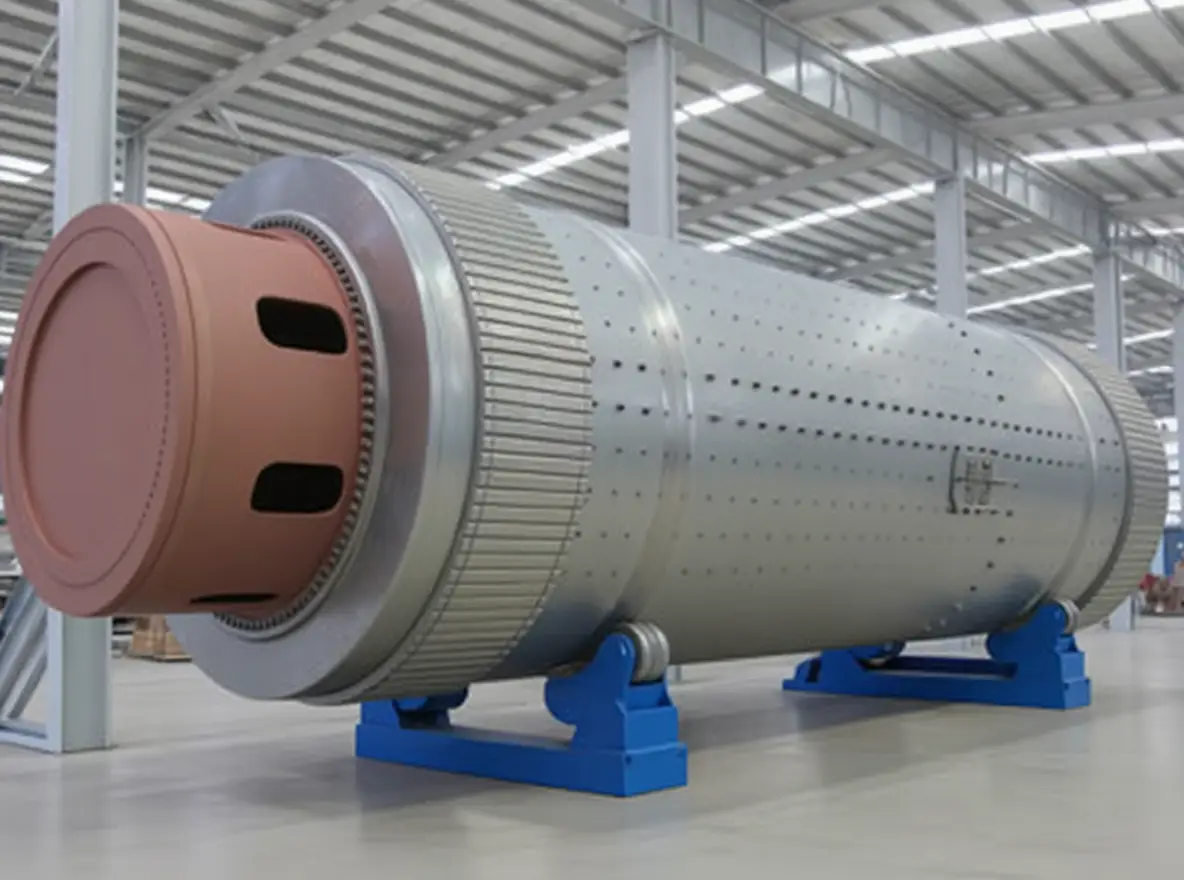Service
Cement Ball Mill
Cement ball mills, also known as tube mills, are versatile grinding machines widely used in various industries. They are ideal for processing limestone, cement clinker, gypsum, slag, ore, and other materials. These mills are essential in cement production, silicate products, new building materials, refractories, fertilizers, and even in the glass ceramics industry. Cement ball mills come in two main types: normal and super-fine.

Cement Ball Mill
Features and Benefits
As a leading manufacturer, DMPCR offers high-quality cement ball mills that are cost-effective and reliable. Our mills stand out due to several key features. They boast a perfect motor system with low energy consumption, which significantly reduces operating costs. Additionally, they provide a good working environment with effective sealing that minimizes dust and noise.
Cost-Effectiveness
Cement ball mills from DMPCR are economically priced, offering excellent value for money. They also include exceptional after-sales service, ensuring high-cost performance in today’s market. Additionally, with factory-direct pricing, lower human and material costs contribute to competitive pricing.
Reliability and Durability
These mills feature robust construction with a hollow shaft made of cast steel and wear-resistant linings. This results in smooth and reliable operation. The rotary gear is processed with hobbing of steel castings, enhancing durability. The main bearing uses a sliding bearing with labyrinth composite sealing, extending service life.
Technical Aspects
The cement ball mill’s design includes a unique process for grinding. Material enters the first bin via a feeding device through the hollow shaft. Stepped or corrugated linings filled with steel balls of varying specifications facilitate grinding. As the cylinder rotates, centrifugal force raises the balls to a certain height, then allows them to fall, crushing the material. After rough grinding in the first bin, material moves to the second bin for finer grinding with a flat liner and additional steel balls.
Price Influences
Several factors influence the price of a cement ball mill:
Production Costs: Include materials, labor, and electricity.
Technical Enhancements: Consideration for technology imports and equipment upgrades.
Capacity Needs: Larger capacities often offer more comprehensive services and cost savings.
Geographical Factors: Differences in consumption levels across regions.
Market Dynamics: Based on supply and demand.
Maintenance: Spare parts and upkeep costs.
Conclusion
DMPCR’s cement ball mills offer a reliable, efficient, and cost-effective solution for all grinding needs. With customizable options, excellent customer support, and competitive pricing, they stand as an ideal choice for businesses looking to optimize their operations with a high-quality cement ball mill.
